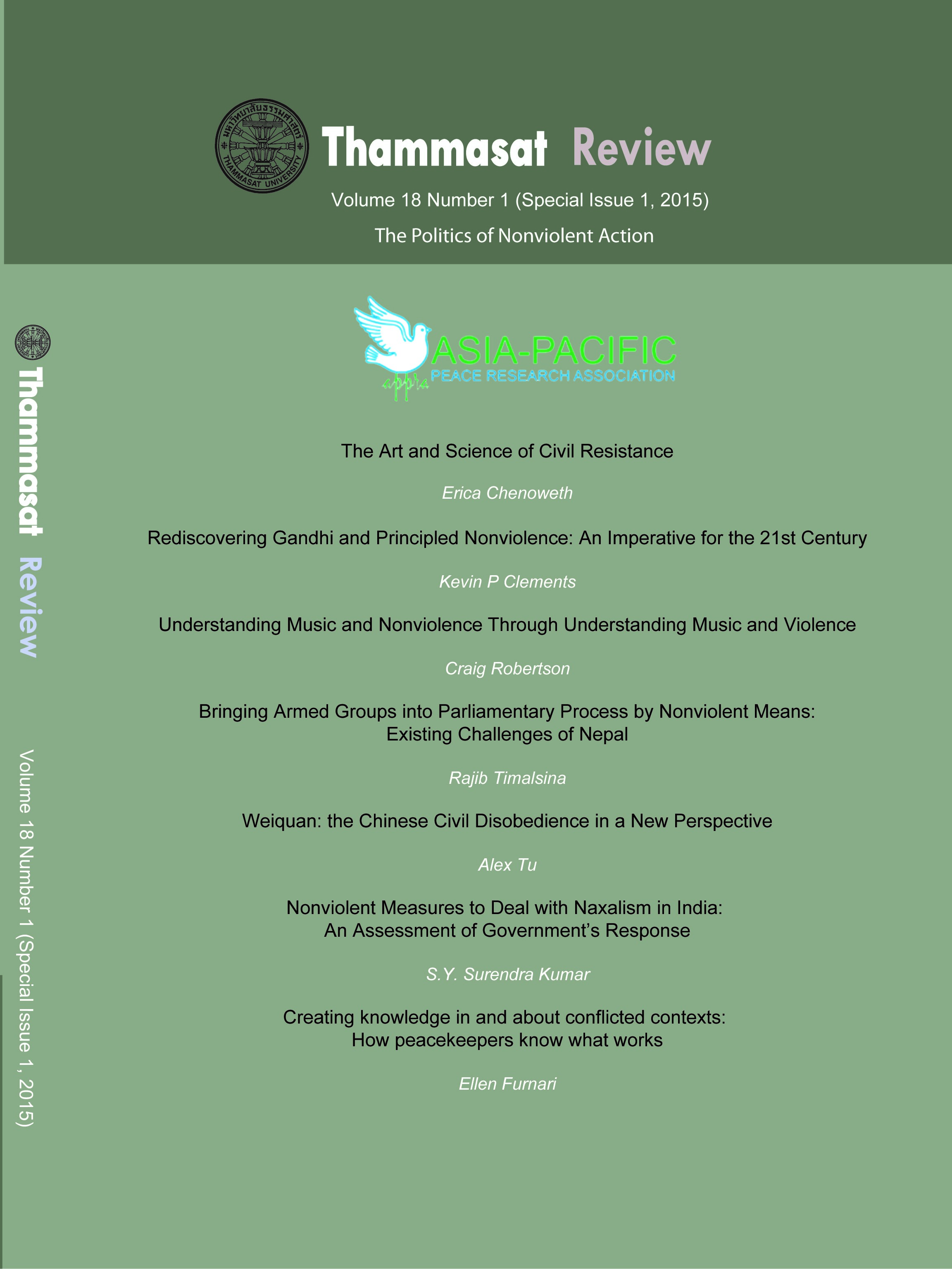Nonviolent Measures to Deal with Naxalism in India: An Assessment of Government’s Response
Abstract
Naxalism has sprouted in India and has been invigorated by decades of inequality, displacement, poverty, failure to deliver on promised land reforms, denial of community rights over forests, and recourse to excessive military measures, all of which essentially boils down to failure of governance. To address the problem, successive governments have initiated a mixed baggage of both violent and nonviolent measures. Statistically, failure of this strategy is indicated by the fact that over the decades, Naxalism has spread to around 223 of India’s 640 districts. In this context, this paper examines government-initiated nonviolent measures like development, socio-economic integration and political dialogue, their practical consequences, and their major limitations. It concludes that if government fails to rethink its policy approaches, the Maoist-led struggle would drastically curtail India’s development and growth.
Keywords: Naxalism, Nonviolent, Development, Political Dialogue
Downloads
How to Cite
Issue
Section
License
The opinions and ideas expressed in all submissions published in Thammasat Review are solely that of the author(s) and do not necessarily reflect that of the editors or the editorial board.
The copyright of all articles including all written content and illustrations belong to Thammasat Review. Any individuals or organisation wishing to publish, reproduce and distribute a particular manuscript must seek permission from the journal first.








